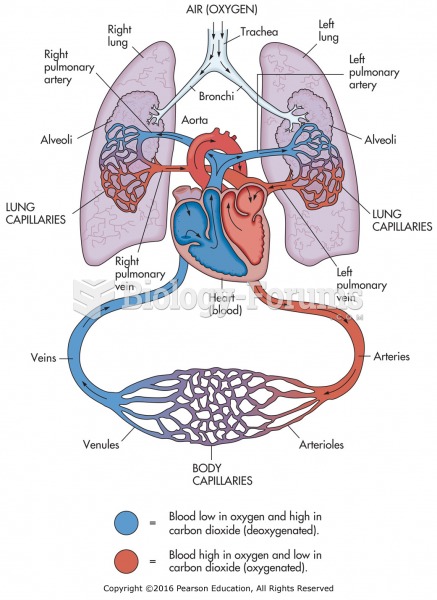|
|
|
The Romans did not use numerals to indicate fractions but instead used words to indicate parts of a whole.
The Centers for Disease Control and Prevention has released reports detailing the deaths of infants (younger than 1 year of age) who died after being given cold and cough medications. This underscores the importance of educating parents that children younger than 2 years of age should never be given over-the-counter cold and cough medications without consulting their physicians.
There are more nerve cells in one human brain than there are stars in the Milky Way.
Between 1999 and 2012, American adults with high total cholesterol decreased from 18.3% to 12.9%
Hippocrates noted that blood separates into four differently colored liquids when removed from the body and examined: a pure red liquid mixed with white liquid material with a yellow-colored froth at the top and a black substance that settles underneath; he named these the four humors (for blood, phlegm, yellow bile, and black bile).







